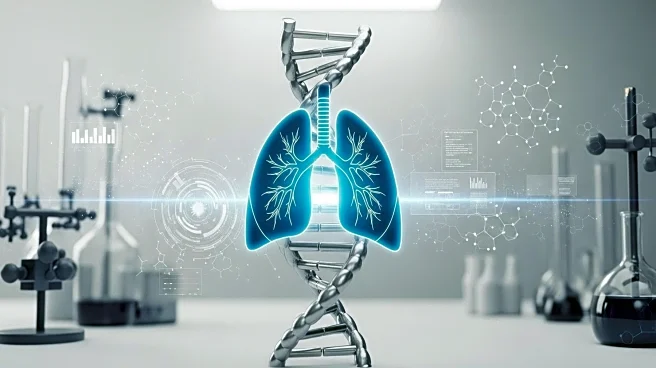What is the story about?
What's Happening?
Bristol Myers Squibb and BioNTech have announced promising results from a Phase II study of their investigational bispecific antibody, BNT327, also known as pumitamig, in treating extensive-stage small cell lung cancer. The study, presented at the 2025 World Conference on Lung Cancer, showed a confirmed overall response rate of 76.3% among 38 evaluable patients, with a 100% disease control rate when combined with standard chemotherapy. The study marks the first global data for the anti-PD-L1/VEGF therapy, which aims to block cancer cells from evading immune responses and suppress tumor-sustaining blood vessel formation.
Why It's Important?
The high response rates and disease control achieved by pumitamig could represent a significant advancement in the treatment of small cell lung cancer, a condition with limited therapeutic options. The success of this bispecific antibody could pave the way for new treatment protocols, potentially improving survival rates and quality of life for patients. The promising results also highlight the potential for BMS and BioNTech to capture a substantial market share in the oncology sector, with analysts predicting a $1.4 billion revenue opportunity upon successful launch.
What's Next?
BioNTech has initiated a global Phase III study, ROSETTA-LUNG01, to further evaluate pumitamig as a first-line treatment option for extensive-stage small cell lung cancer. This trial is expected to conclude in September 2029, potentially leading to a market launch in 2028. The continued development and eventual approval of pumitamig could significantly impact treatment standards and patient outcomes in the field of oncology.















